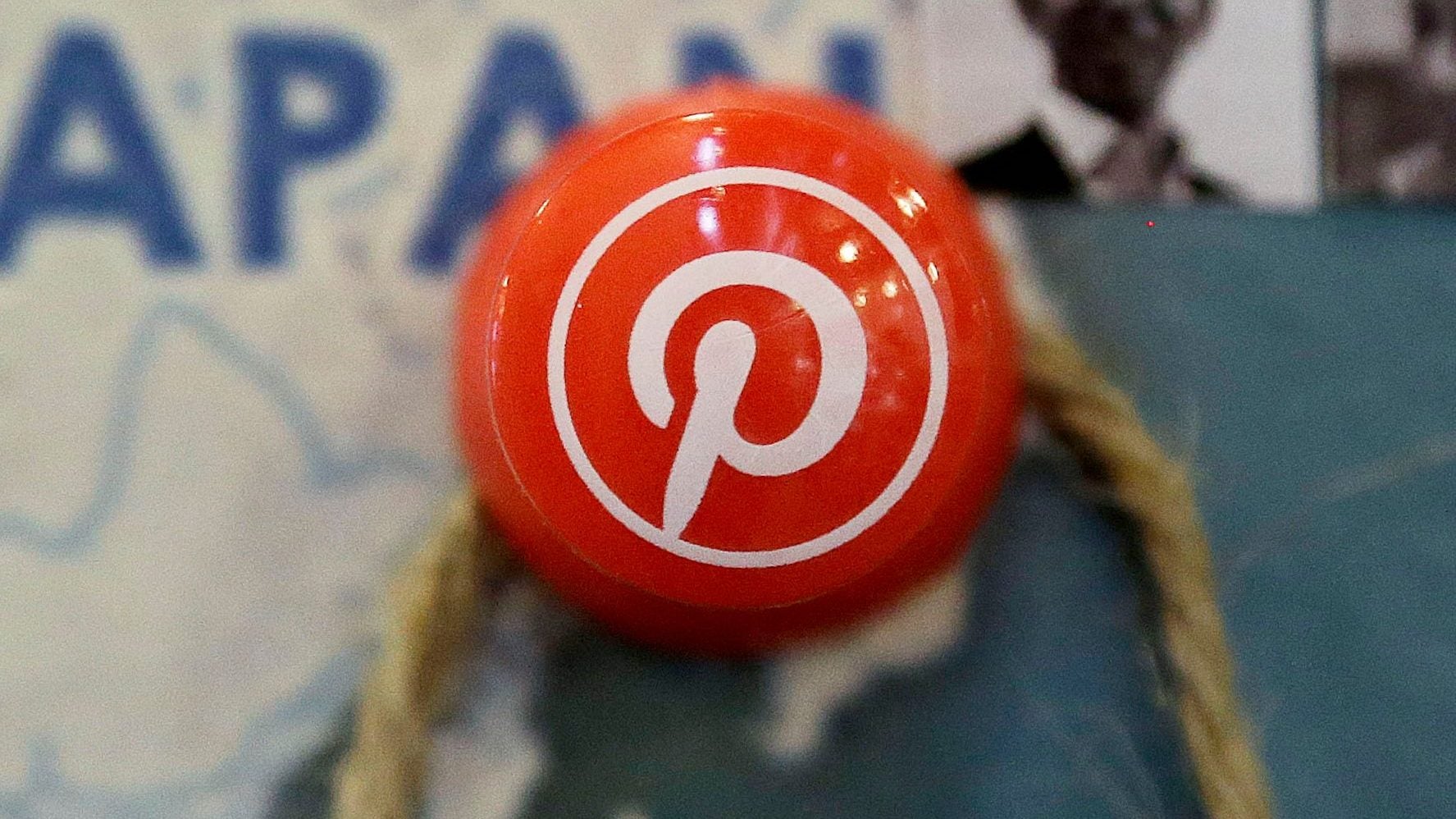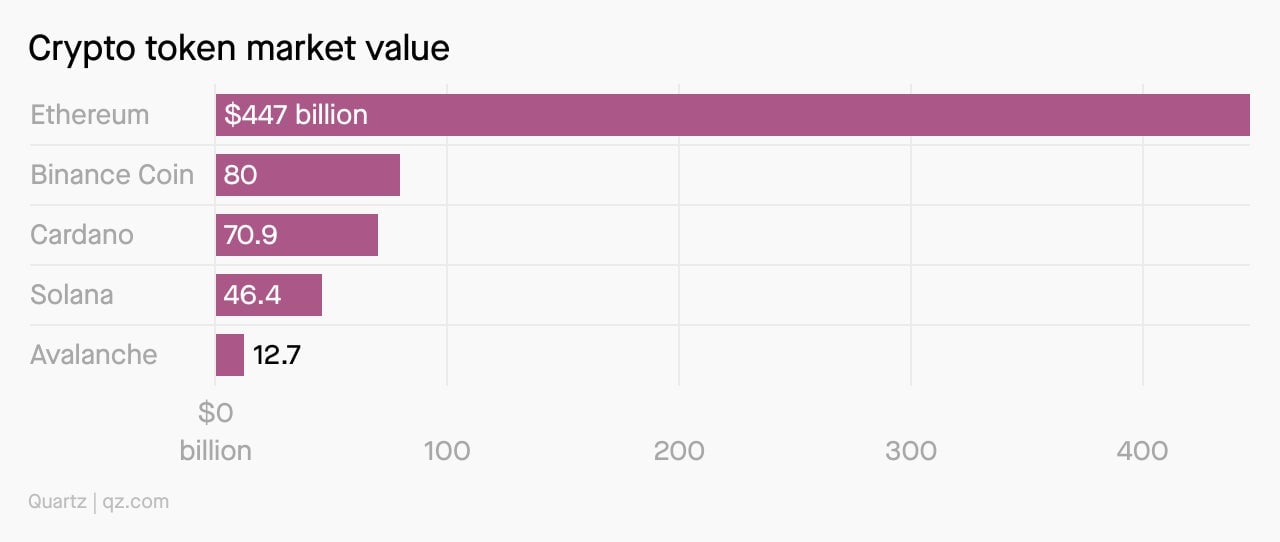PayPal may buy Pinterest
Good morning, Quartz readers!


Good morning, Quartz readers!
Was this newsletter forwarded to you? Sign up here. Forward to the friend who knows it’s OK to be bored sometimes.
Here’s what you need to know
Pinterest has a suitor. PayPal is in talks to buy the social media site in a deal that would value the company at $45 billion, Bloomberg reports.
The UK fined Facebook £50.5 million ($69.6 million). The country’s competition regulator said the social platform failed to hand over certain information as part of an investigation into its acquisition of Giphy.
The US banned the export of hacking tools. A new Commerce Department rule covers software like the NSO Group’s Pegasus spyware, and is squarely aimed at countries like China and Russia.
Netflix employees who walked out want the company to make some changes. Their “list of asks” includes removing all Dave Chappelle references and imagery from the workplace and investment in trans and non-binary content—a day after Netflix’s co-CEO made a non-apology apology.
Exxon Mobil is having second thoughts about some of its oil and gas projects. The fossil fuel giant is reportedly considering pulling the plug on certain investments due to concerns from environmentalists, but such divestments might not actually help the planet.
US investors are still going gaga over Chinese tech stocks. An ETF of 53 US-listed Chinese tech companies is up 21% so far this year, despite Beijing’s crackdown. In other markets news, the Dow hit an all-time high, but investors had a meh reaction to Tesla’s record quarter.
What to watch for

On Friday, the doors will open at Climate Pledge Arena, the new home base for the NHL’s Seattle Kraken and the WBNA’s Seattle Storm. It purports to be the world’s first net-zero arena; when Amazon CEO Jeff Bezos announced that his company had bought the stadium’s naming rights in June 2020, he said the name was meant “as a regular reminder of the urgent need for climate action.”
0: Fossil fuels that will be consumed on-site at the arena (even the Zamboni is electric)
15,000 gallons: Capacity of the cistern the arena will use to capture rainwater to turn into ice for the hockey rink
35,000 metric tons: Annual CO2 emissions from waste generated by fans at NHL, NFL, NBA, and MLB games combined
500,000: The Tokyo Olympics’ carbon footprint was equal to a year’s worth of emissions from this many cars
19%: Increase in Amazon’s carbon footprint during the pandemic
Next month, Quartz is headed to a different climate pledge arena—the UN climate conference COP26, where countries are expected to put the finishing touches on the Paris Agreement. Join us (vicariously) in Glasgow, Scotland by signing up for our Need to Know: COP26 newsletter.
Stablecoin’s future gets wobbly
The US is cracking down on stablecoins, cryptocurrencies that are tied to certain government-backed currencies or precious metals like silver or gold.
Here’s what happened:
💵 The US government took its first major shot at Tether, fining the popular stablecoin $41 million for allegedly misstating its reserves.
⚓️ Is Tether actually tethered to anything? The stablecoin, which is the most valuable in the world with a market capitalization of $69 billion, said it has enough money in reserves. But the US said Tether’s reserves have relied on unregulated entities and third parties.
🔍 The fine signals the US is watching closely, and it’s likely the beginning of a push for consumer protection and transparency from stablecoins, Charley Cooper, a former chief operating officer of the US Commodities Futures Trading Commission, said.
Speaking of futures…
The finance of the future is decentralized. DeFi—decentralized finance—is a new breed of financial services built on a blockchain and capable of stripping out traditional banks. (The aforementioned stablecoins are part of the DeFi ecosystem.)
Right now, decentralized exchanges and lending systems use blockchains like the Ethereum network, and most decentralized apps run on Ethereum. But as the speed of transactions on Ethereum slows and their costs rise, the network’s competitors are growing in market value.

✦ We went deep into DeFi in the latest issue of The Forecast, a weekly email only for Quartz members. And while we can’t give you psychic abilities (we wish), the Forecast will give you a clearer view into the future of all sorts of things. 🔮 Sign up today to get 40% off with code QZEMAIL40.
Handpicked Quartz
Surprising discoveries
A human successfully received a pig kidney transplant. It could change organ donation as we know it.
Your interest in environmental concerns could be genetic. A study showed evidence that identical twins were more likely to have the same views on the climate crisis than non-identical twins.
Queen Elizabeth II said she’s not eligible for an “Oldie of the Year” award. “Her Majesty believes you are as old as you feel” said the polite rejection letter.
The Wiggles are throwing an adults-only reunion tour. The Australian group’s original lineup is hoping to cash in on the nostalgia of the grownups who they delighted as children.
A venomous viper stowed away in a shipping container from India. It’s not what the UK stonemasonry company ordered, but at least it got there on time.
Our best wishes for a productive day. Send any news, comments, snake charmers, and charming rejection letters to [email protected]. Get the most out of Quartz by downloading our iOS app and becoming a member. Today’s Daily Brief was brought to you by Tim McDonnell, Scott Nover, John Detrixhe, Morgan Haefner, Susan Howson, and Liz Webber.